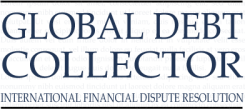
Nov
Debt Collection Procedures
A Guide for Businesses and Individuals
Recovering debts can be a complex task for businesses and individuals alike, but having a clear understanding of the debt collection procedures can make the process smoother and increase the chances of success. In this guide, we’ll cover each step of the debt collection process, from amicable settlement attempts to legal enforcement, offering insights into best practices and compliance standards.
Understanding the Debt Collection Process
The debt collection process involves a series of steps aimed at recovering overdue payments from individuals or businesses. Typically, these steps are designed to resolve the issue amicably at first, before turning to legal solutions if necessary.
Stages of Debt Collection
- Initial Contact and Reminder Notices
- The process begins with sending reminder notices to the debtor to notify them of the overdue amount. This can include emails, phone calls, and letters, all of which serve as friendly reminders.
- Reminder notices usually escalate in urgency, beginning with gentle reminders and progressing to more formal communications if payments aren’t received.
- Negotiation and Amicable Settlement Attempts
- At this stage, the creditor attempts to work with the debtor to reach an amicable settlement. Often, this involves restructuring the payment terms to make repayment manageable for the debtor.
- Amicable settlement is cost-effective and preserves the relationship between the creditor and debtor, especially useful if they have ongoing business ties.
- Formal Demand Letter
- If the debtor has still not paid, a formal demand letter is issued. This document is a final request for payment, usually delivered by certified mail, outlining the debt amount, due date, and consequences of non-payment.
- Demand letters are a critical part of the documentation process and often serve as evidence should the case proceed to court.
- Engagement of a Debt Collection Agency
- When amicable methods fail, many creditors turn to a debt collection agency. These agencies have the expertise, resources, and legal authority to pursue overdue accounts on behalf of the creditor.
- Agencies follow strict ethical and legal guidelines to recover debts, including avoiding harassment and maintaining confidentiality.
- Legal Action (If Necessary)
- If all else fails, the creditor may decide to take legal action. This could involve filing a lawsuit against the debtor, depending on the jurisdiction and amount owed.
- Legal proceedings can be costly and time-consuming, but they provide a final recourse to secure payment.
- Enforcement of Judgment
- If the court rules in favor of the creditor, enforcement measures are taken to collect the debt. This could include wage garnishment, asset seizure, or property liens.
- The enforcement step depends on the laws in the jurisdiction where the debt was incurred and can vary widely.
Legal Framework and Compliance in Debt Collection

Debt collection laws are in place to ensure that creditors have a fair path to recover debts, while
also protecting debtors from abusive practices. Here are key compliance points in debt collection:
- Consumer Protection Laws: Laws like the Fair Debt Collection Practices Act (FDCPA) in the U.S. protect consumers from aggressive collection practices. It’s crucial for collection agencies to comply with local laws in each jurisdiction.
- Documentation Requirements: Keeping detailed records of all communications and attempts to collect debt is essential. This documentation serves as proof of compliance and may be used in court if necessary.
- Respect for Debtor Rights: Collection agents must avoid harassment, misleading statements, and threats. Respect for debtor rights helps maintain the integrity of the collection process and prevents legal repercussions.
International Debt Collection: Challenges and Solutions
When debt collection involves international parties, additional complexities arise due to different legal systems, currency exchanges, and enforcement procedures. However, several solutions make international debt collection feasible:
- Mutual Legal Assistance Treaties (MLATs): MLATs allow countries to cooperate on legal matters, including debt collection. These treaties facilitate the enforcement of judgments across borders.
- Debt Collection Agencies Specializing in Cross-Border Recovery: Many agencies specialize in international debt recovery and understand the unique legal requirements and processes of each country.
- Local Representation: In some cases, creditors may need to engage local legal representation in the debtor’s country to pursue payment. Local representatives provide knowledge of local laws and processes.
Tips for Effective Debt Collection
- Act Early: The sooner you begin the collection process, the more likely you are to recover the debt. Early intervention minimizes the risk of the debtor becoming insolvent.
- Be Persistent but Professional: Maintain regular follow-up communications, but always remain professional. Persistence without pressure often yields the best results.
- Utilize Technology: Automated reminders, tracking software, and CRM tools can help streamline the debt collection process and improve efficiency.
- Know When to Involve a Third Party: If internal collection efforts are unsuccessful, consider hiring a collection agency. Professional agencies are skilled in navigating complex cases and have a higher success rate.
FAQs About Debt Collection Procedures
Q1: What happens if a debtor ignores all collection efforts?
- If a debtor ignores all communications, the creditor may take legal action, which could result in wage garnishment, asset seizure, or property liens, depending on the jurisdiction.
Q2: How long does the debt collection process take?
- The time frame varies. Amicable resolutions can take days or weeks, while legal proceedings may extend for several months.
Q3: Can debt collection agencies operate internationally?
- Yes, many agencies specialize in international debt collection and can pursue recovery across borders through local representation and mutual agreements.
Q4: Are there limits to the amount a debt collection agency can recover?
- Generally, agencies can pursue the entire amount owed. However, local laws may impose certain restrictions, particularly on the interest and fees that can be charged.
Q5: What fees are associated with hiring a debt collection agency?
- Most agencies work on a commission basis, meaning they charge a percentage of the recovered amount. This rate varies depending on the complexity and age of the debt.
Conclusion: Navigating Debt Collection with Strategy and Compliance
Debt collection is a challenging but necessary process for maintaining financial health in business. By understanding each stage, from amicable resolution to legal enforcement, businesses and individuals can increase their success rates while staying compliant with debt collection laws. Whether you’re dealing with domestic or international debt, following these guidelines will provide a structured, professional approach to recovering unpaid debts.
